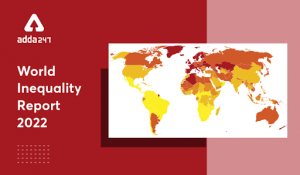
France-based World Inequality Lab published its report titled “World Inequality Report 2022”. This report was authored by Lucas Chancel, who is the co-director of World Inequality Lab. It was coordinated by famed French economist Thomas Piketty. In 2021 the top 10 percent and top 1 percent of the Indian population hold 57 percent and 22 percent of total national income respectively, whereas the share of the bottom 50 percent has gone down to 13 percent.
Buy Prime Test Series for all Banking, SSC, Insurance & other exams
Key Findings analysis on inequalities in India:
- The report notes that the top 1 % of India’s population owns more than one-fifth of the total national income in 2021.
- The bottom half of the population earns just 13.1 per cent.
- It highlights that economic reforms and liberalization that India has adopted, have mostly benefited the top 1 per cent.
- The report identifies India as a poor and unequal country, with an affluent elite.
- 1 per cent richest people in India hold 22% of the total national income in 2021, while the top 10 % owns 57 per cent of the income.
- The average national income of the Indian adult population is Rs 204,200 in 2021, on the basis of purchasing power parity.
- However, the report clarified that the average national income of a country masks inequalities.
The scenario in the world’s richest nation
The ratio in the richest nation that is the US, is 1 to 17. The richest ten of the global population owns 52 per cent of global income. On the other hand, the poorest half of the population earns 8.5 per cent of the global income.
Global Scenario
The Middle East and North Africa (MENA) are the most unequal regions in the world, whereas Europe has the lowest inequality levels. In Europe, the top 10 per cent income share is around 36 per cent, whereas in MENA it is 58 per cent.




 India Beat Pakistan in T20 World Cup 202...
India Beat Pakistan in T20 World Cup 202...
 Weekly One Liners 09th to 15th of Februa...
Weekly One Liners 09th to 15th of Februa...
 Highest Partnerships in India–Pakistan T...
Highest Partnerships in India–Pakistan T...








